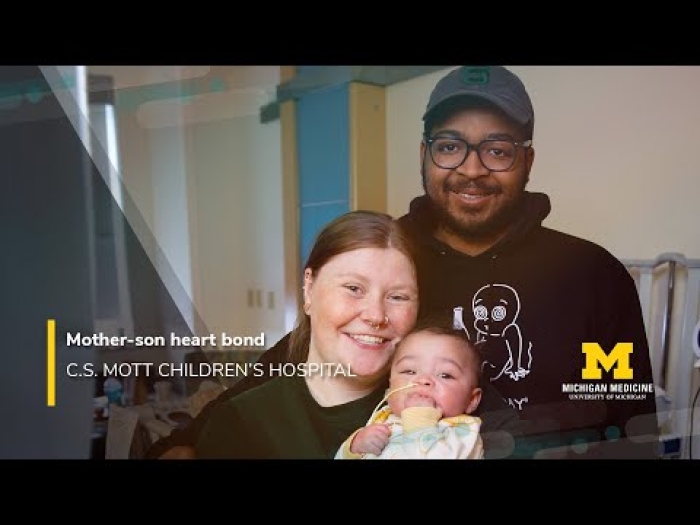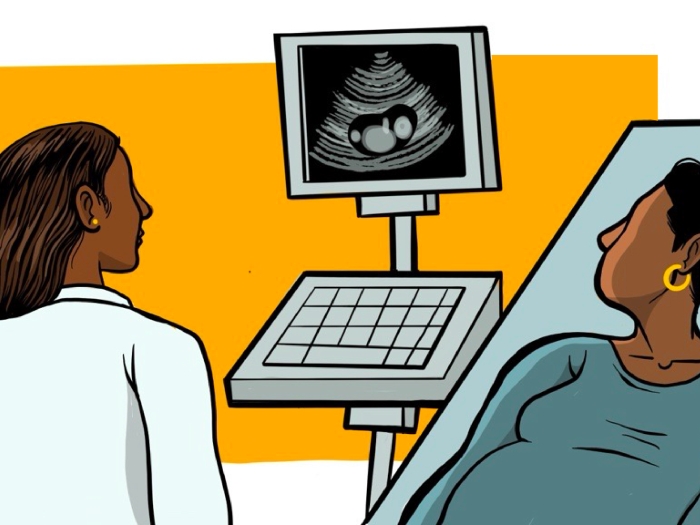As residency programs struggle to balance the well-being of trainees and the need to provide ample training, a new study finds inconsistent parental leave policies.
12:00 PM
Author |

A new analysis finds striking inconsistency in parental leave policies at the nation's top medical residency programs, illustrating the enormous challenge these programs face balancing training the next generation of doctors and supporting trainees' personal and family needs.
LISTEN UP: Add the new Michigan Medicine News Break to your Alexa-enabled device, or subscribe to our daily audio updates on iTunes, Google Play and Stitcher.
On the one hand: Hospitals depend on the clinical care their residents provide. Extended family leaves can affect staffing, as well as residents' ability to build competency.
On the other hand: New parents have physical and emotional needs, and aspiring doctors should not have to delay having children beyond their peak years of fertility.
"Becoming a doctor includes a long period of training and service," says Reshma Jagsi, M.D., D.Phil., director of the Center for Bioethics and Social Sciences in Medicine at the University of Michigan, and the study's co-senior author. "At the same time, we are seeing growing attention in medicine to the integration of career and family.
"It's extraordinarily complicated and challenging to balance the competing demands here."
Benefits vary widely
Jagsi and colleagues at five other institutions assessed formal leave policies for residents who have a new baby. They looked at the top graduate medical education programs, according to two different published rankings.
MORE FROM THE LAB: Subscribe to our weekly newsletter
Using institutional websites, they searched for policies regarding parental leave for residents. Policies were verified by the institutions. Results are published in JAMA.
Of 15 teaching hospitals, eight had an institutional policy providing paid childbearing or family leave for residents. The average maternity leave was 6.6 weeks. For same-sex couples, adoptive parents or fathers, paid leave policies averaged 3.9 weeks.
No one should have to choose a medical career at the cost of being able to have a family.Reshma Jagsi, M.D., D.Phil.
"In my opinion, there is an urgent need for medical schools to create more generous family leave policies for all of their trainees," says co-senior study author Christina Mangurian, M.D., MAS, professor of psychiatry and vice chair for diversity and health equity at UC San Francisco.
"Regarding birth-mothers specifically, I believe that expanding childbearing leave will not only benefit the mental and physical health of these mothers and their babies but will also support our long-term goal to have women thrive in medicine by providing support when they need it most."
Better policies for doctors
Parental leave policies are more established and more generous for full-time faculty. A recent report found that the average childbearing leave for faculty physicians at 12 top medical schools was 8.6 weeks.
And among institutions representing the residency programs examined in the JAMA analysis, all of them had policies for faculty physicians.
SEE ALSO: Medical Residency Interview Tips from 3 Doctors Who Do the Hiring
"It's remarkable that nearly half of these institutions lacked a common institution-level policy for resident parental leave, even though they all had at least some policy to support faculty leave," says Jagsi, noting that details of those policies were difficult to find at some institutions — and those that did exist typically didn't cover common concerns, such as whether on-call duties have to be paid back.
"Certainly, department-level policies exist in some cases and individual accommodations occur," Jagsi adds. "But it's challenging for individuals to make family planning decisions when accommodations are ad hoc, expectations are opaque, and policies vary so widely."
Change benefits all
The authors emphasize that there's likely no magic formula for parental leave for residents. Instead, they encourage developing transparent and consistent policies that take into account both the importance of medical training and the need to honor childbearing years.
"Teaching hospitals are directing greater attention to the challenges of parenting during graduate medical training, amid a sharper focus on physician well-being overall. Change is certainly occurring, though not as quickly as we'd like," says study author Debra Weinstein, M.D., vice president of graduate medical education at Partners HealthCare and associate professor of medicine at Harvard Medical School.
This shift, experts agree, reflects the inherent purpose of medicine.
"Failing to recognize and accommodate the physical and emotional needs of childbirth and parent-child bonding is inappropriate within a profession that, at its core, seeks to promote human health," Jagsi says.
"Simply put: No one should have to choose a medical career at the cost of being able to have a family."

Explore a variety of healthcare news & stories by visiting the Health Lab home page for more articles.

Department of Communication at Michigan Medicine
Want top health & research news weekly? Sign up for Health Lab’s newsletters today!





